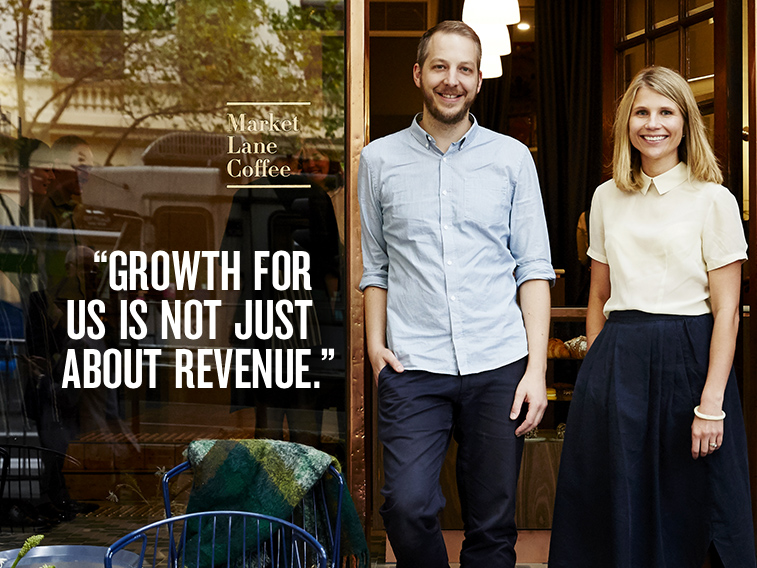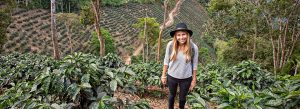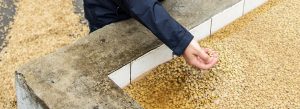Conditions and Confidence improve for SMEs


Fleur Studd and Jason Scheltus saw a gap in the Melbourne coffee market for a quality speciality coffee product that could be traced back to its producers.

Melbourne has a reputation for taking coffee very seriously. Entrepreneurs Fleur Studd and Jason Scheltus have played an influential role in building that reputation with their purist approach to the business of the bean.
They’re the co-founders of Market Lane Coffee, the Melbourne-based business that developed from their passion for high quality coffee, their shared belief in ethical and transparent sourcing, and a respect for producers they wanted to share with Australian coffee drinkers.
Today the business encompasses a roasting operation, five cafes, online sales and a wholesale business. It roasts 1,500 kilograms of coffee weekly and employs 60 staff. Scheltus and Studd travel overseas four or five times a year personally sourcing coffee and developing relationships with growers in countries including Rwanda, Ethiopia, Bolivia, Kenya and Guatemala.

Studd and Scheltus met in London working for Monmouth Coffee Company, the business that helped
drive the speciality coffee movement there. Studd had a marketing background; Scheltus was a coffee roaster.
Returning to Melbourne and seeing a gap in the market in 2008, Studd drew on contacts from London
and the mentorship of Monmouth owner Anita Le Roy to begin importing high quality green coffee beans as Melbourne Coffee Merchants with her father, cheese providore Will Studd.
Meeting up with Scheltus shortly afterwards, the pair realised they shared a vision for the kind of coffee business they wanted to create. They joined forces and opened their first Market Lane Coffee cafe, breaking new ground on several fronts. It focused on alternative serving methods to espresso, such as filter coffee, only offered full-cream dairy milk (no soy) and limited the food offering so as not to distract from the main event. Opening the retail site created the public face that allowed them to achieve another goal – educating customers.
“The site came up and so that next step happened quicker than we’d anticipated,” says Studd. “But it was a great time to be opening Market Lane because it was the start of speciality coffee changing in Melbourne. We tried to set the quality bar really high. We made decisions that felt scary – like only offering full-cream milk, no soy milk – but we didn’t want to compromise in any way.”
Providing information about the origin and producer of the coffee was first and foremost in the partners’ vision for the business, as well as building awareness about coffee’s seasonality.
“Transparency was the big one,” says Scheltus. “At that time in the industry in Australia there wasn’t much transparency around the coffee being sold. Mostly roasters were selling blends of two or more coffees and weren’t disclosing where it was from.”
“There was also a lot of old coffee being sold,” Studd adds. “We wanted to introduce the concept of seasonality, offering different coffees at different times of year, so that people would understand that, like any fresh produce, coffee is seasonal.
“Plus we wanted to develop the concept of filter coffee. There wasn’t any filter coffee being served [by cafes] so we focused on producing high quality pour-over in our shops. We wanted to show people they could easily make great coffee at home using the method, too.”

The business evolved organically with new stores opening as suitable sites became available, explains Studd. Each store fitout combined the distinct Market Lane Coffee minimalist style with features reflecting the community, like engaging local artists and craftsmen.
As the business has grown, a challenge for the partners has been how to maintain their original vision, including the personal approach that was a key part of it.
“Our goal was always to stay very hands on and that’s meant we’ve had to make that a priority, to stay very involved and have a big input into everything,” says Scheltus.
“We’ve focused on making sure that initial philosophy – the transparency and the quality, keeping it local – has been a constant, and that’s dictated the kind of growth and expansion we had in terms of what we wanted the business to do.
“Growth for us is not just about revenue. We wanted a business that was growing in better structure, better staff conditions, better ethical practices; a sustainable business that worked well for us, our producers, our customers, our staff, and for the local communities we operate in.”
In line with that philosophy, the next phase of growth for Market Lane won’t come from adding stores but by doing what it does now, only better, says Studd.
“We’re at a size we’re happy with and wouldn’t want to grow beyond,” she says. “We have 60 staff and beyond that would become harder to be hands on. Our priority is focusing on doing everything better, that we have the best coffee, and give the best service we can.”
This article was first published in Business View magazine (Issue 24).
© National Australia Bank Limited. ABN 12 004 044 937 AFSL and Australian Credit Licence 230686.